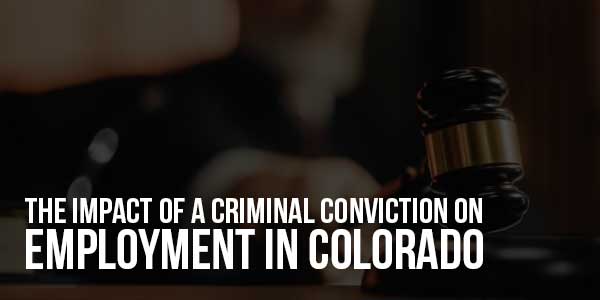
Facing a criminal conviction in Colorado can change your job prospects. Employers often worry about hiring someone with a record. You might find it hard to get a job, or you may face limitations in certain roles. A Colorado criminal lawyer can guide you through this challenging situation. They know how to help you reduce the impact of a conviction. Some employers might be open to second chances if you show change. It’s crucial to understand your rights and options.
Knowing the law can help you make better choices. You can explore job opportunities that don’t focus heavily on background checks. Seek out roles that value skills and experience over past mistakes. This blog will help you learn more about your employment rights after a conviction. Understanding these aspects allows you to face the challenge with confidence and work toward a better future.
Table of Contents
Understanding Employment Challenges:
After a conviction, you may encounter several challenges in the job market. Many employers conduct background checks. A record can influence their hiring decisions. Some industries are stricter than others about hiring someone with a criminal record. For instance, jobs in education, healthcare, and security often have more rigorous requirements. On the other hand, some employers are required to follow “Ban the Box” laws. These laws prohibit asking about criminal history on initial job applications.
Key Legislation:
In Colorado, the “Colorado Chance to Compete Act” helps individuals with criminal records. This law removes the criminal record box from initial applications. It allows candidates to proceed further in the hiring process without immediate rejection. Also, Colorado law limits the use of arrest records unless there is a conviction. Visit the Colorado Department of Labour and Employment to learn more about these protections.
Employment Opportunities:
There are fields where a criminal record may not be a barrier. Skilled trades, technology, and construction might offer more opportunities. Companies in these sectors often value experience and capability over past mistakes. Additionally, some organisations actively hire individuals with criminal records. They believe in second chances and offer supportive environments. Research and networking can help you identify these potential employers.

Impact On Job Types:
| Job Type | Impact Level | Notes |
| Education | High | Strict background checks required |
| Healthcare | High | Licensing may be affected |
| Construction | Low | Skills and experience are valued |
| Technology | Medium | Varies by company |
Preparing For The Job Search:
When applying for jobs, honesty is crucial. Be upfront about your past if asked. Prepare to discuss how you have changed and what you have learned. Highlight your skills, achievements, and any training or education completed post-conviction. Tailor your resume to the job. Focus on your competencies and experiences.
Seeking Legal Help:
If you feel overwhelmed, seeking legal advice can help. A Colorado criminal lawyer can provide insight into your rights. They may help with sealing or expunging a record if possible. This process can open up more job opportunities. Learn more about expungement from the Colorado Department of Corrections.
Conclusion:
Navigating employment after a conviction is tough but not impossible. Understanding laws and knowing your rights is key. Exploring industries open to hiring despite a record widens your prospects. Always be honest and focus on personal growth. Support exists to help you succeed in finding a job. A chance for a new beginning remains within reach. Equip yourself with the right tools, and you can thrive in the workforce.

 About the Author:Ravi Sanghvi writes about legal rights, employment challenges, and post-conviction recovery in Colorado. With insights from legal experts and real-world experiences, he aims to help readers understand how a
About the Author:Ravi Sanghvi writes about legal rights, employment challenges, and post-conviction recovery in Colorado. With insights from legal experts and real-world experiences, he aims to help readers understand how a 












Be the first to write a comment.